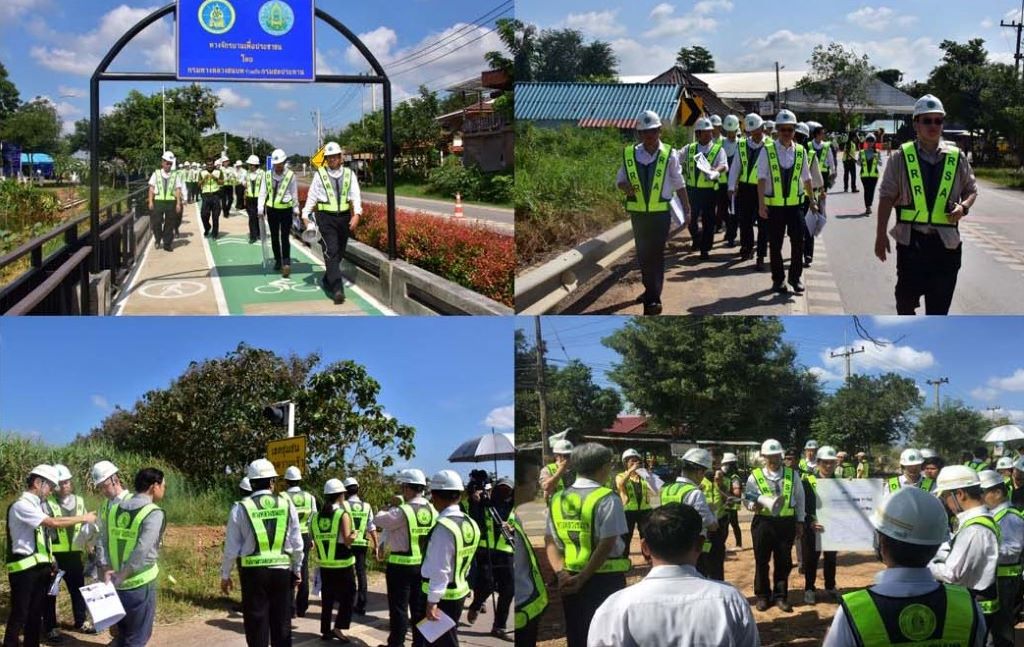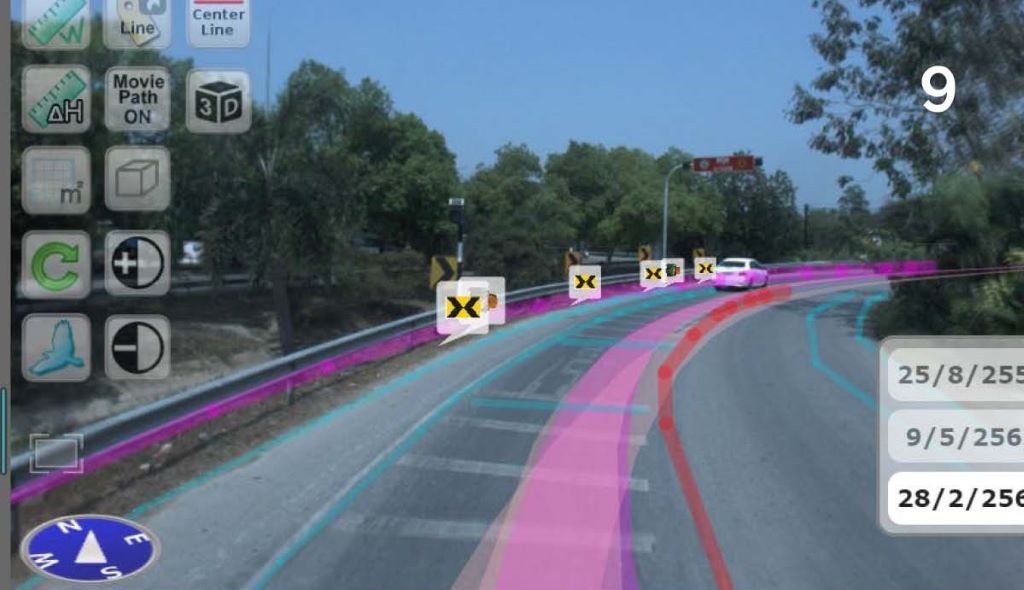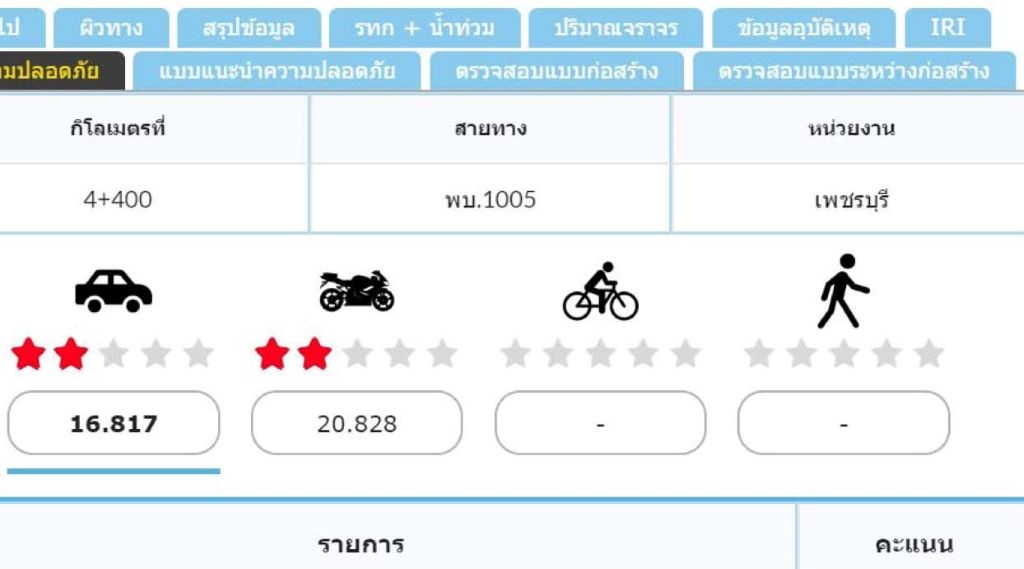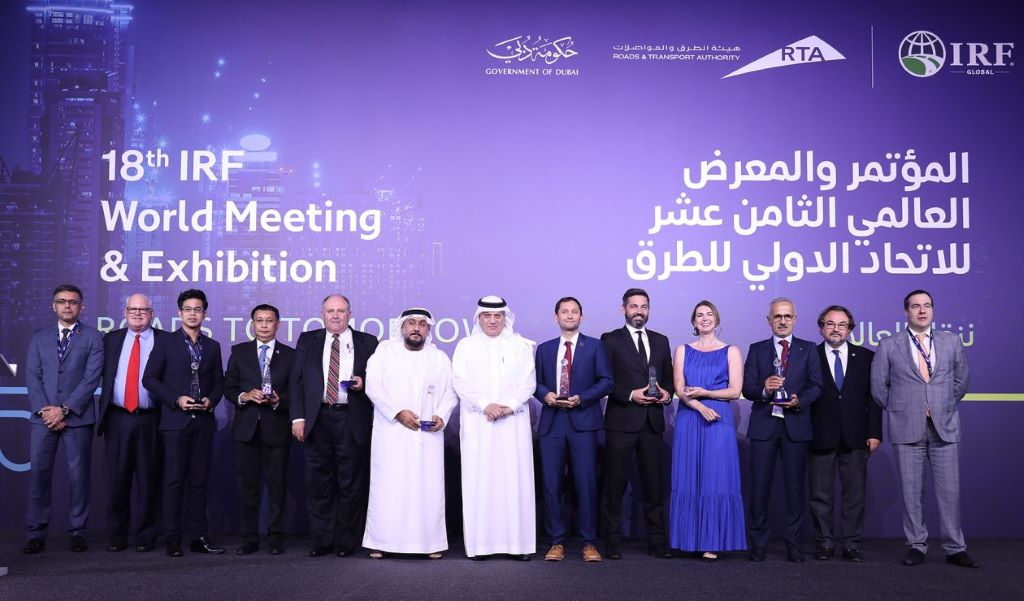Thailand’s Department of Rural Roads (DRR) has been awarded, for the second year running, the International Road Federation (IRF) Global Achievement Award in the Safety Category for its Integrated Road Safety Management System.
DRR’s iRAP-endorsed Road Safety Audit System (RSAS) has analysed the risk scores for rural road segments of its 47,303km road network based on the iRAP Star Rating methodology.
Within two years, the project has achieved:
- 1,309 risk spots have been investigated and treated
- Crashes have reduced by 71% from 1,309 to 1,021 crashes
- Fatalities have reduced by 75% from 52 to 13 fatalities
- An estimated benefit-cost ratio of 3.9 has been achieved with the estimated improvements cost of $3.0 million and benefits from lives saved by the improvements of $11.8 million – a benefit equal to nearly 4 times the improvement investment.
DRR’s exceptional “Integrated Road Safety Management System Development Project” is in collaboration with national research institutes and international consultants (VicRoads and Safe Systems Solution, Australia).
The project aimed to develop a comprehensive road safety management system that can identify safety problems within the existing road network, diagnose the safety deficiencies at a specific site, and recommend potential countermeasures for effectively improving high-risk roadway segments, as well as to advance capacity-building efforts across all road safety communities.
Within this framework, DRR has adopted both proactive and reactive approaches to improve road safety by means of the integrated road safety management system.
The ground-breaking decision tool has three basic modules:
- It identifies high-risk locations based on historical crash frequency reported from the Accident Report Management System (DRR-ARMS) and risk scores based on the iRAP Star Rating methodology.
- It provides road asset management datasets and street view imagery for road safety experts to conduct a desktop exercise and determine road safety deficiencies prior to a site investigation.
- It recommends possible short-term and long-term treatments and allows decision-makers to customize a reasonable set of countermeasures.
Since 2018, the system has been implemented systematically. Crash locations and high-risk locations have been identified, diagnosed, and the corresponding recommendations have been made through Road Safety Audit and Road Accident Investigation techniques.
With this success, DRR is pursuing a 30% further reduction in road fatalities in the next five years.
DRR is responsible 10% of the road network across the nation. Its vision is to enhance the technical safety standard of the rural road network for achieving Vision Zero.
Thai Minister of Transport Saksayam Chidchob said of the award, “Technological innovation is essential in overcoming road safety problems under limited resource and inadequate solutions. It is believed that close to Vision Zero is possible but will require a clear shift in road safety philosophy and technological advance.”
DRR’s Road Safety Audit System is supported under the iRAP Innovation Framework.
IRF’s Global Road Achievement Awards (GRAA) recognize innovative road projects and exemplary people that place the road industry at the forefront of worldwide social and economic development. See the 2021 winners list here and the Award Programme Booklet with winners summaries here.
In addition to 48,000km of RSAS assessments, ThaiRAP, the local road assessment programme for Thailand has Star Rated 1,350km, trained 1,035 local engineers and influenced more than US$1.5million of safer rural road infrastructure investment.
The new Global Plan for the Decade of Action for Road Safety was profiled in Thai Parliament last month and the country has a policy requiring all new roads to be built to a 3-star or better standard, announced by the Ministry of Interior in August 2019.
ThaiRAP is led by Chulalongkorn University, an iRAP Centre of Excellence.
For information on ThaiRAP, please contact Professor Kasem Choocharukul, Professor of the Chula Faculty of Engineering on email kasem.choo@chula.ac.th
Images source: IRF and Chulalongkorn University




















